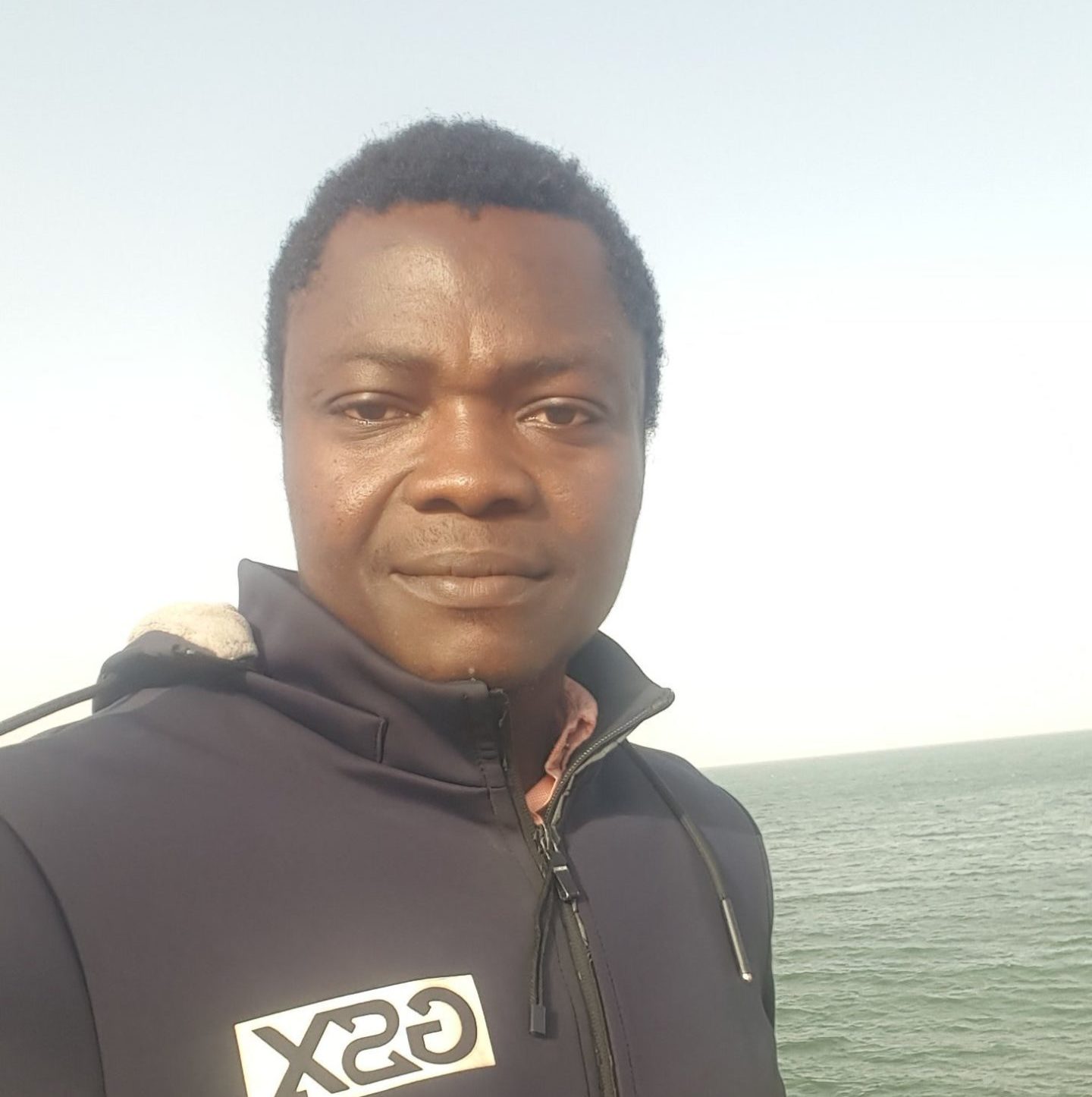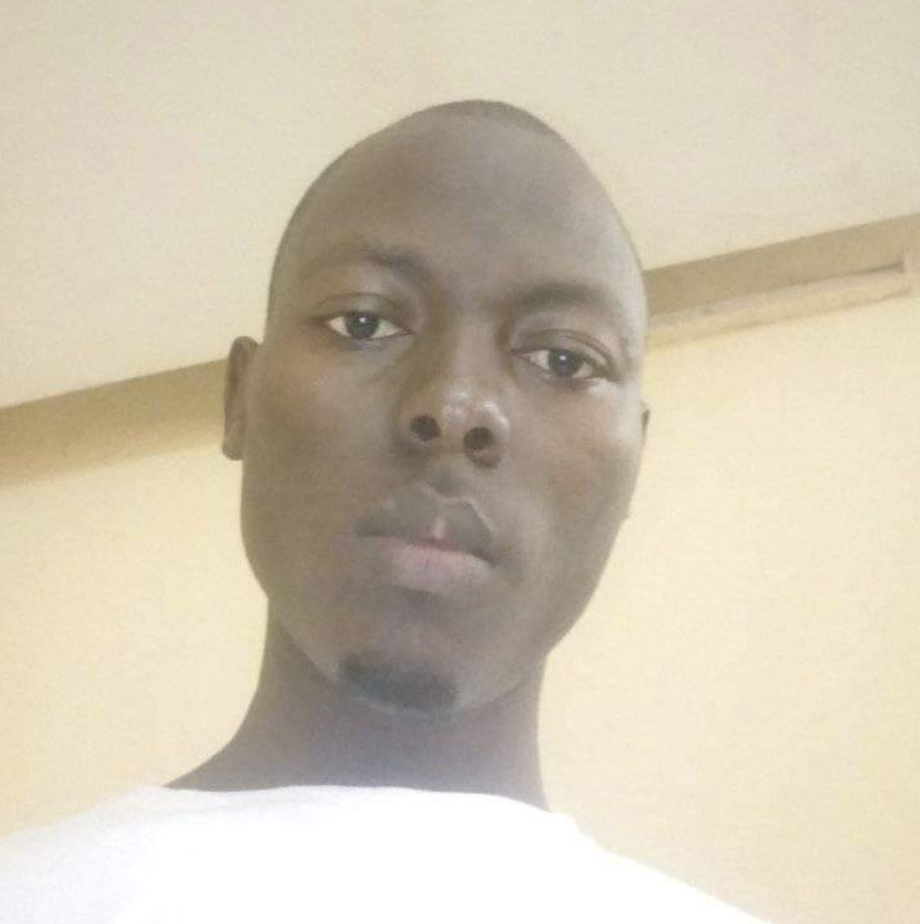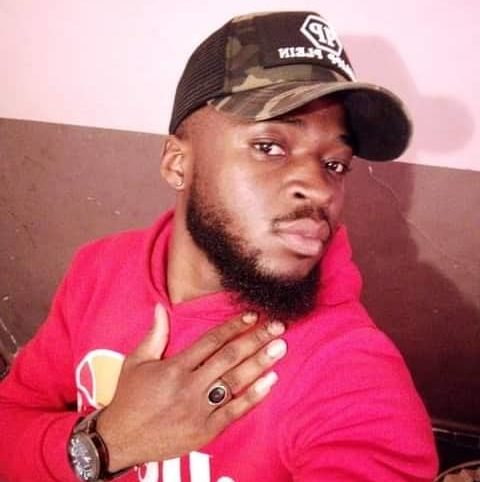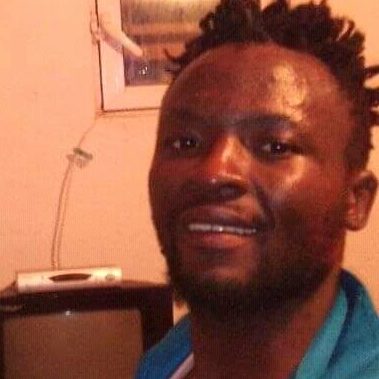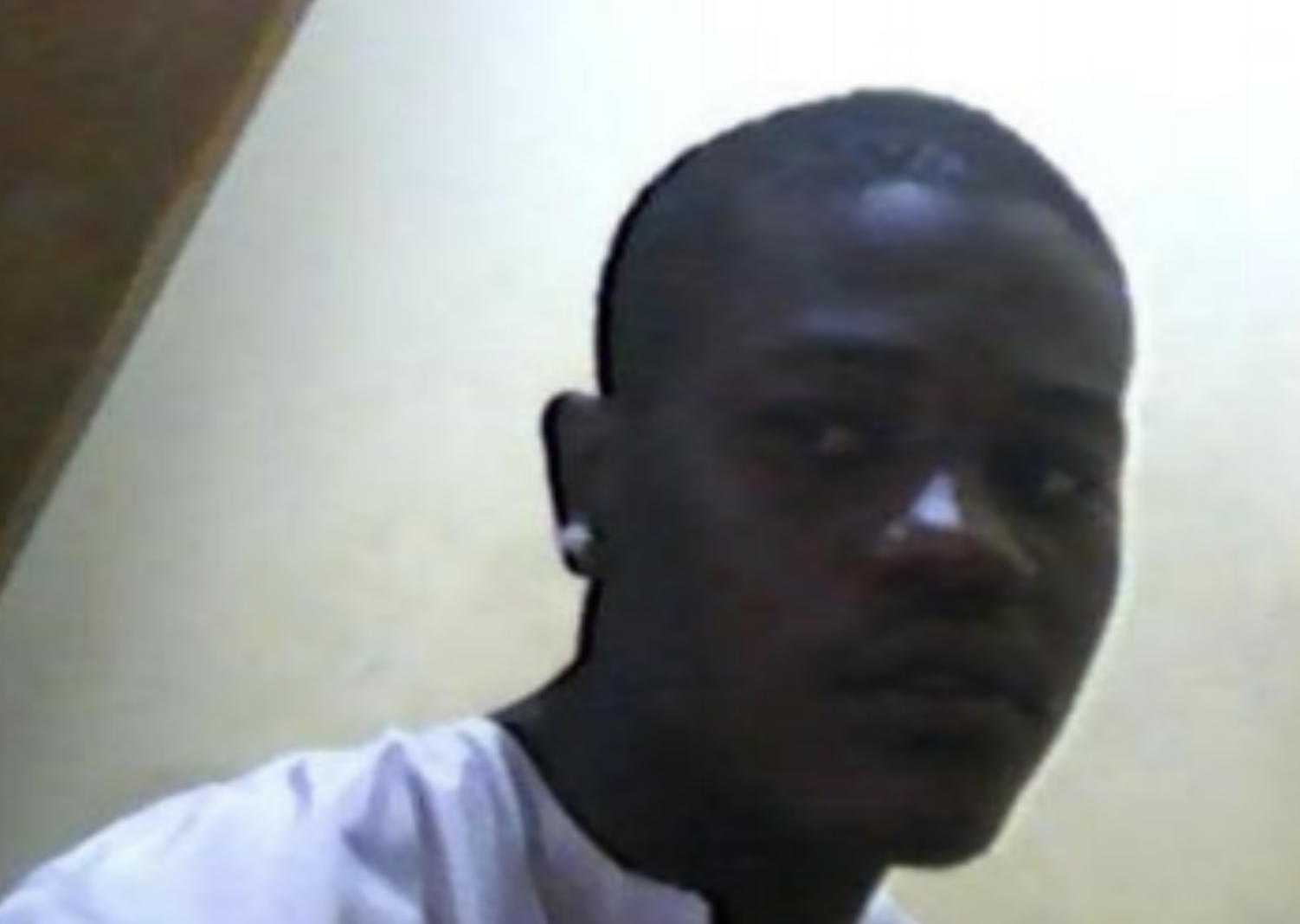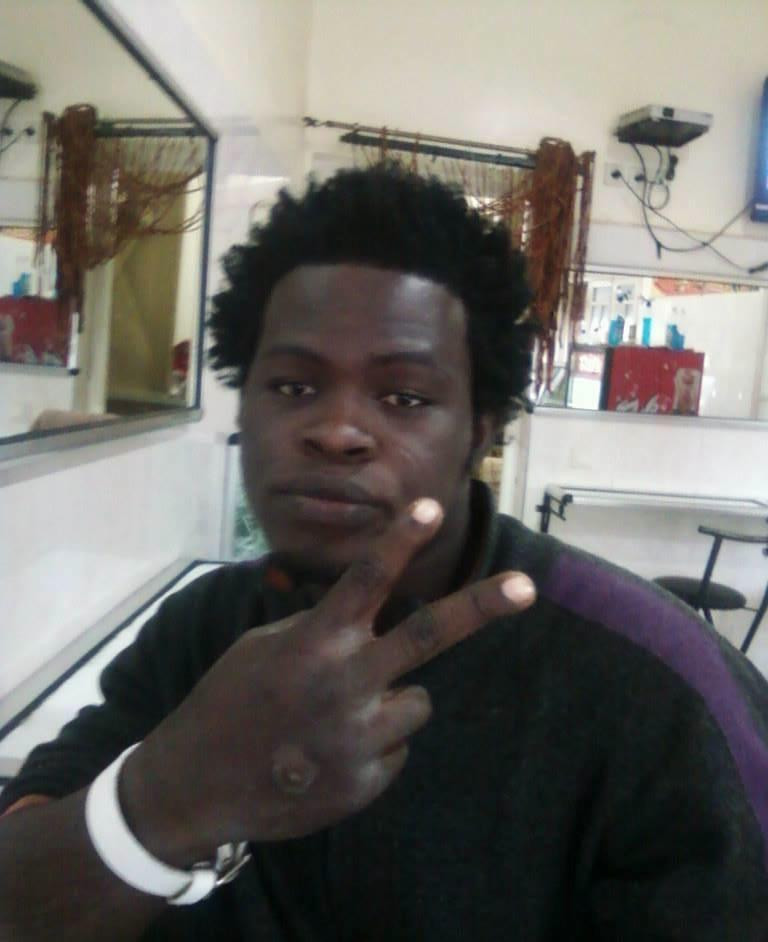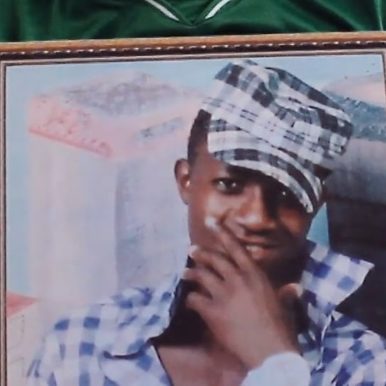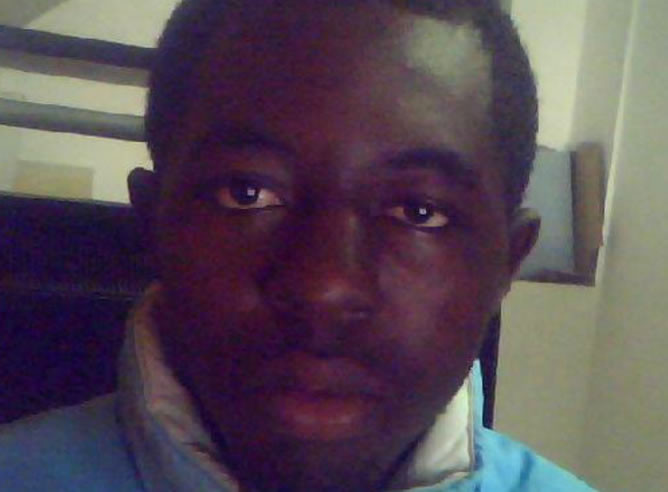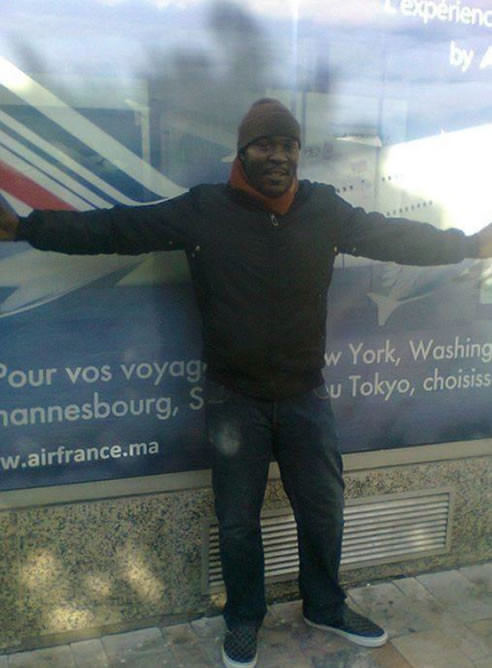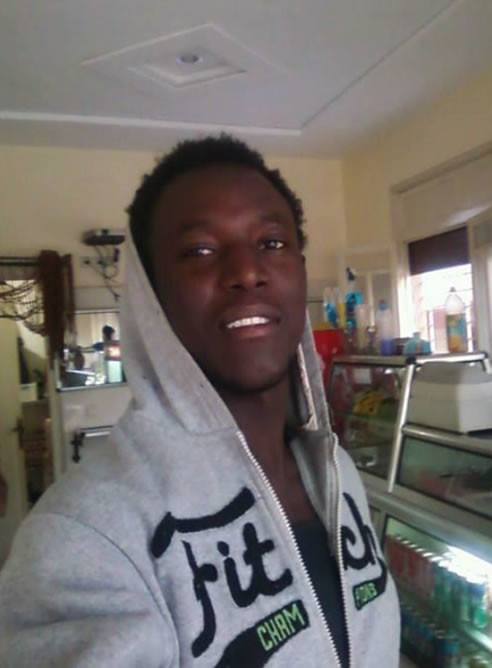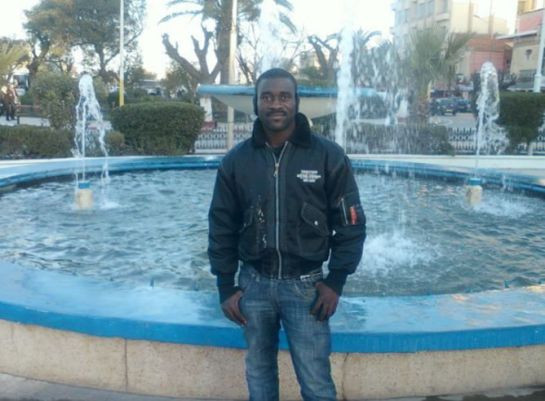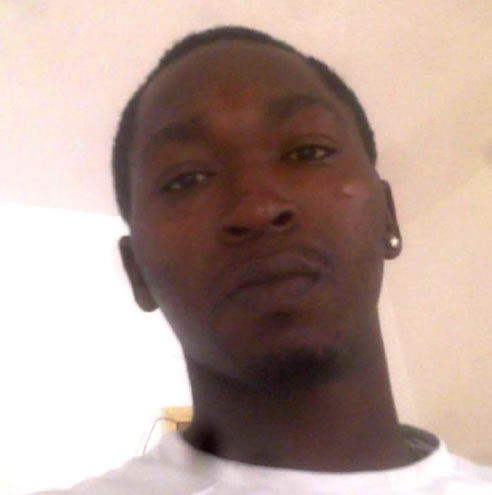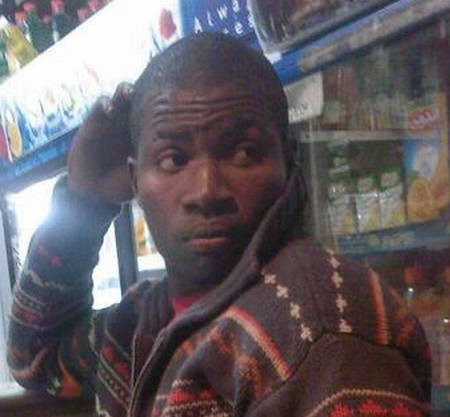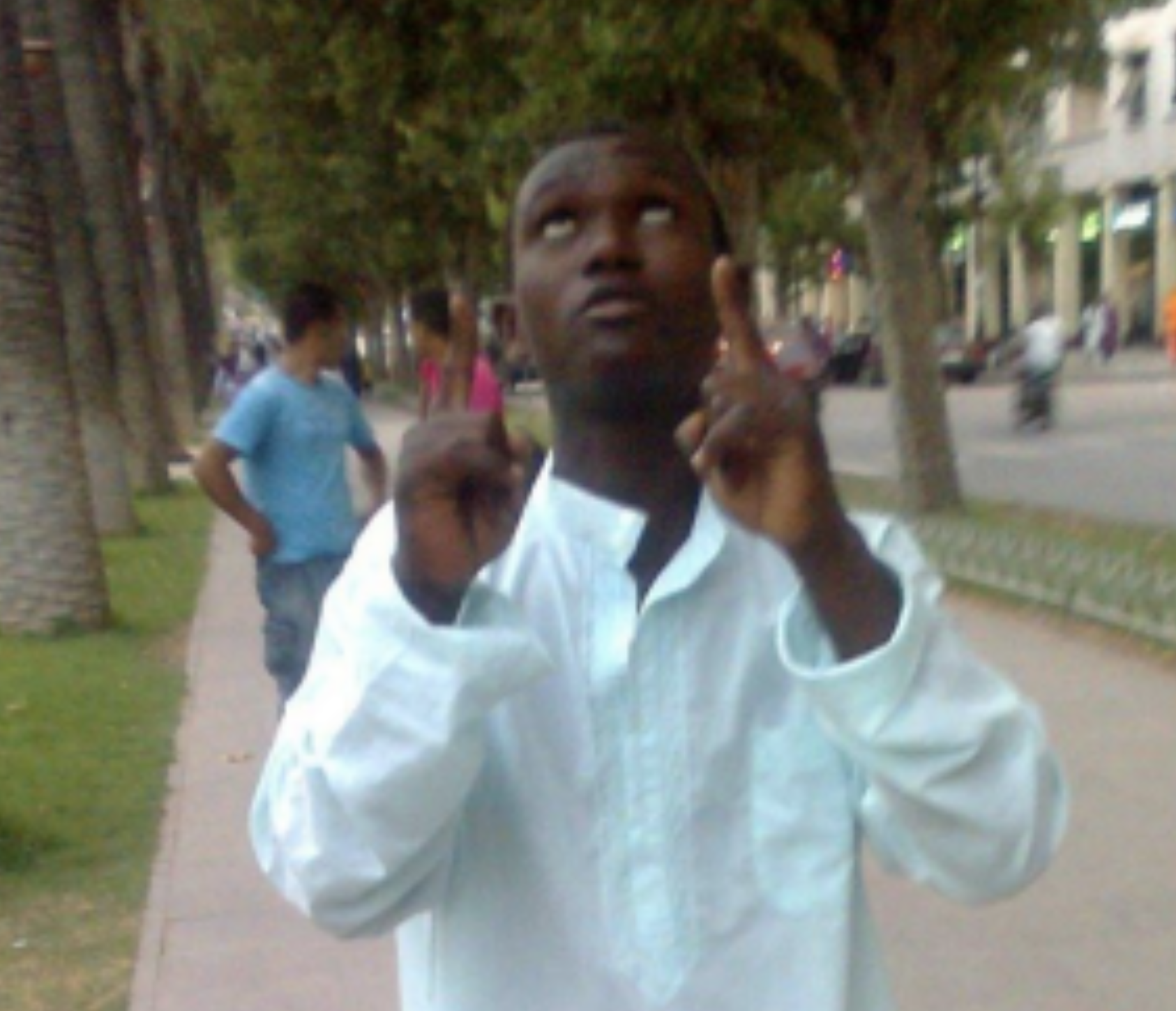Since he last spoke to his family on 21 November 2020, he has not been heard from again. His wife and sister continue to search for him, knowing that he was on board a boat that left Dakhla and disappeared on 22 November.
Nacionalidad de la víctima: Cameroon
Kameni Idriss Carlos
He left on board a boat with fifty-nine people, including ten women and two children. His older brother has been looking for him ever since.
Takouleu Noussi Romeo
He left with thirty-one or fifty-nine people on one of the two boats that left at the same time. His older sister is looking for him.
Thiago Maurice
Thiago’s brother knows he set off on Christmas Eve 2018, heading for Spain. However, there is no trace of him. The impossibility of reconstructing the tragedy in which he could have lost his life causes insufferable pain to his family.
Ndenkou Audrey Dave
Residing in the Moroccan capital, his aunt remains in suspense years later, not knowing what happened to her nephew Dave, nicknamed “Ismaël” by his travelling companions.
Armand Ferdinand Souop Tagne
A 23-year-old man, his family defines him as a very intelligent boy who excelled in studies. At noon on February 6, 2014, his parents received a call informing them of his death. He was a victim of the Tarajal tragedy. Armand’s body was the only one of the fourteen victims that managed to be repatriated to his home country from Morocco, thanks to the efforts of his father.
You can learn more about his story in our documentary “Tarajal: Transformar el dolor en Justicia”
Aboubakar Oumarou Maiga
Before leaving, he worked in the laundry in his city, Douala. He left to help his family, with the goal that his little brothers and his mother could live well. Victim of the Tarajal tragedy, he drowned trying to reach Spain after being received with riot gear by the Spanish authorities. His body was buried in Morocco, but his family doesn’t know where yet.
You can learn more about his story in our documentary “Tarajal: Transformar el dolor en Justicia”
Bikai Luc Firmin
The Christmas before he died, his father promised to open the way with his prayers when Bikai confessed his intention to leave the country. After losing his life in the Tarajal tragedy, his family celebrates a mass in his memory every year. A way of reminding him in front of the pain of not knowing what was done with his body, where little Bikai ended up.
You can learn more about his story in our documentary “Tarajal: Transformar el dolor en Justicia”
Ousman Hassan
He was engaged in sewing before leaving, he had great qualities for it. However, he decided to migrate thinking that if he was able to build another life, he would be able to gradually change his family’s life. He considered that the money he earned sewing, a job he learned after school, was not enough to continue studying and help his brothers. Ousman died in the Tarajal tragedy and since then his family mourns him. “It hurts not to be able to bury your loved one with dignity,” they repeat in pain.
You can learn more about his story in our documentary “Tarajal: Transformar el dolor en Justicia”
Nana Roger Chimie
His older sister took care of him like a son, getting him, the little one, to go to elementary school and high school. One day, she herself received a call from abroad, they told her that her brother had died trying to swim to Spain. Roger was a victim of the Tarajal tragedy, a Spanish beach where he had been received with riot gear by the Spanish authorities. Since then, he is mourned in his hometown.
You can learn more about his story in our documentary “Tarajal: Transformar el dolor en Justicia”
Larios Fotio
One day, Larios set out to see his older brother to tell him that he would like to go to university, where he had not been able to go due to his mother’s lack of financial means after the death of his father. He believed that the best thing would be to fight for his future, so he decided to leave. Like when he was a child, his family remembers him as a fighter and attentive person. After losing his life in the Tarajal tragedy, his family still does not know where his body is. They urgently demand to be able to identify his loved one and visit his remains to close the wound.
You can learn more about his story in our documentary “Tarajal: Transformar el dolor en Justicia”
Bilong Yves Martin
Roth, as he was nicknamed in his hometown, focused on playing soccer after high school. He actually wanted to leave to be a footballer. Upon arriving in Morocco, he said that he would live there with small jobs and continue to play soccer. On February 6, 2014, his friends called the family stating that “he had been shot”. To his parents’ surprise, they were able to recognize his dead son on television shortly after. Bilong was a victim of the Tarajal tragedy. Even if his body is far away, they made a symbolic grave for him in his hometown to honor his memory.
You can learn more about his story in our documentary “Tarajal: Transformar el dolor en Justicia”
Daouda Mahatma
His family remembers him as a very hard-working and courageous person. He studied and worked at the same time. Before attempting to cross into Spain, he called his aunt, his mother, and his brother to pray for him. It was the last time they spoke to him. Some boys who knew him called the family to confirm that Daouda had died. He was a victim of the Tarajal tragedy. Subsequently, the Cameroonian ambassador to Morocco promised to bury him in peace and sent a photo of his burial.
You can learn more about his story in our documentary “Tarajal: Transformar el dolor en Justicia”
